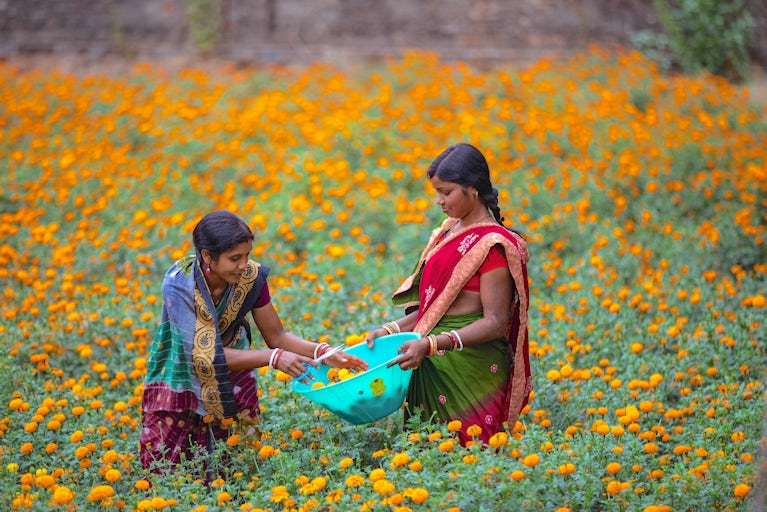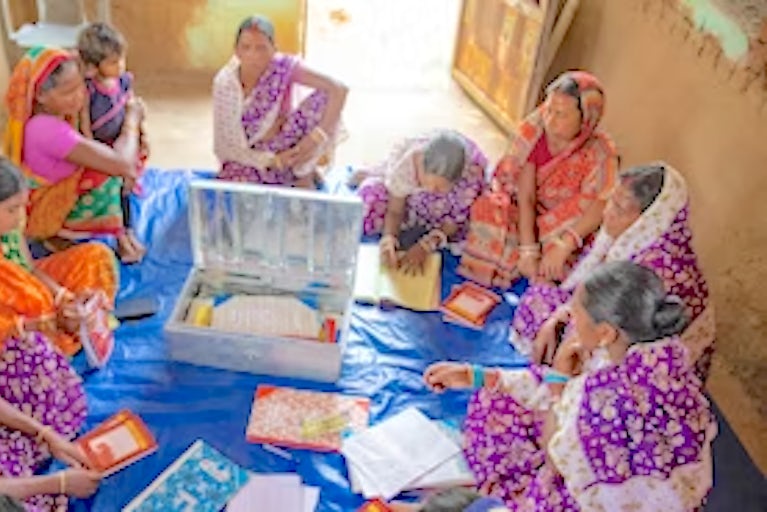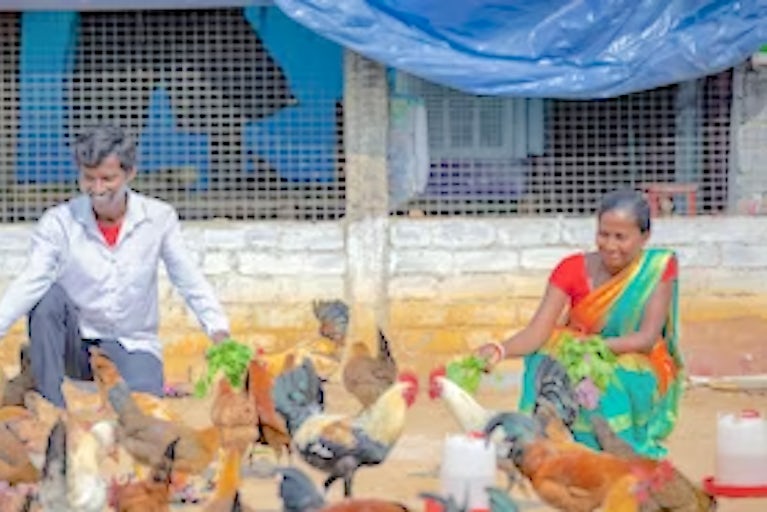
A Young Entrepreneur Shatters Stereotypes in Bihar, India
In a community where most women lead lives devoid of identity and recognition, Preeti is establishing herself as a dynamic young woman and a successful entrepreneur.


We help farmers work collectively to produce food, connect to markets and secure resilient futures.


Home to more than 1.4 billion people, India has the world’s largest population and its fifth-largest economy. The country’s expansive growth in recent decades has been accompanied by exceptional improvements in poverty reduction. However, these gains are not equally distributed, as significant wealth disparity persists alongside other development challenges, including gender inequity and alarming rates of child malnutrition.
The World Bank’s most recent estimate reports roughly 13 percent of the population, some 182 million people, still live in poverty, and this is largely concentrated in rural areas. Agriculture continues to employ about 43 percent of the population, with a vast majority of farmers owning small landholdings, which makes them central to the rural economy. Although agriculture has declined in its role in the national economy, it has outsized importance in these remote communities, where the majority of the poor live and rely on farming to earn a living. A productive, competitive and sustainable agricultural sector — in which rural farmers are supported to access modern technology, capital and markets — is required to lift up the country’s most vulnerable families and secure the nation’s food system.

Work in India is led by Passing Gifts Private Limited, an Indian organization that facilitates work aligned with Heifer International’s mission, operating on the knowledge that strong social capital is key to inclusive development and long-lasting success.
Passing Gifts’ programs support smallholder farmers, especially women, to form self-help groups through which they can identify shared goals, access resources to strengthen their livelihoods, and develop plans for collaborative growth. Passing Gifts facilitates technical training to improve farm-level production and improves access to markets, financing, information and other services that are critical for farmers to build resilient farms.
As farmers and self-help groups scale their operations, our initiatives support them to register their businesses as farmer producer organizations and participate in larger markets, paving the way for individuals to earn more profit and better feed their families.
Our primary objective is helping families achieve a sustainable living income, our measure for the amount of money required for a decent life — including safe shelter, nutritious food, clothing, education and health care — while also reaching additional benchmarks for economic and climate resilience.
Year Heifer launched in India
Household participants in 2024
Household participants to date

Heifer International’s work is organized at the country level into Signature Programs focused on large-scale, measurable and sustainable impact achieved by building partnerships at all levels. Each program supports farmers through time-bound projects designed to increase their household income.
The Accelerating Incomes Signature Program supports enterprise growth of farmer producer organizations (FPOs) and strengthens poultry and horticulture value chains to be inclusive of smallholder farmers. The program partners with FPOs to provide technical training to members, build capacity in business management and expand operations to produce value-added products while collaborating with the government and private sector to improve access to markets and resources.
The Bihar Signature Program works to improve livelihoods and income of women in Bihar state, helping women smallholder farmers improve production of goats, poultry and crops and engage in agribusiness. The program encourages formation of women-led farmer producer organizations, empowering women farmers to access more resources and participate in larger markets.
The Hatching Hope Signature Program — operating under the Hatching Hope global initiative, a program co-created by Heifer International and Cargill — works with farmers, market actors, governments and other partners to improve nutrition and economic livelihoods through the production, promotion and consumption of poultry. The program targets 30,000 farmers in Odisha, focusing on improved poultry housing, health, feed and market access.

The Odisha Goat Value Chain Signature Program targets improved goat production and market opportunities for smallholder farmers in Odisha state. The program prioritizes establishing partnerships that connect smallholders to resources, providing specialized livestock and business training and services and developing farmer-owned enterprises, with the overall goal of lifting 30,000 women farmers to a sustainable living income.
Project timeline: 2019–2025
Implemented in six districts in Bihar state, the Bihar Sustainable Livelihood Development (BSLD) project targets improving the nutrition and incomes of 70,000 smallholder farming families through strengthened enterprise opportunities. Farmers, organized into self-help groups, receive technical and business training and access to financial services to improve goat, poultry and crop production and engage in more inclusive markets. As self-help groups grow into farmer-owned agribusinesses, they are supported to sell their products in bulk and compete in larger markets.
Project timeline: 2022–2027
The Odisha Sustainable Livelihood Development Project is helping 30,000 smallholder women farmers close the living income gap through the goat value chain. The project supports women farmers to work collectively in self-help groups or other farmer-owned agribusinesses, providing technical and business support and links to public- and private-sector actors to improve farmers’ access to markets, credit and specialized agriculture services to expand their enterprises and increase profits.

In a community where most women lead lives devoid of identity and recognition, Preeti is establishing herself as a dynamic young woman and a successful entrepreneur.

The Household Transformation Model offers a robust framework for evaluating and fostering sustainable livelihoods.

The Hatching Hope project interventions are designed to improve the productivity, incomes, nutrition, and resilience of poultry producers.
Manish Kumar Chatli, Director of the Central Institute for Research on Goats (CIRG)
Cart is empty
Success!
Please be patient while we send you to a confirmation page.
We are unable to process your request. Please try again, or view common solutions on our help page. You can also contact our Donor Services team at 855.9HUNGER (855.948.6437).
Covering the transaction fee helps offset processing and administrative fees that we incur through taking payments online. Covering the transaction fee for each payment helps offset processing and administrative fees that we incur through taking payments online. Covering the transaction fee for each payment helps offset processing and administrative fees that we incur through taking payments online.